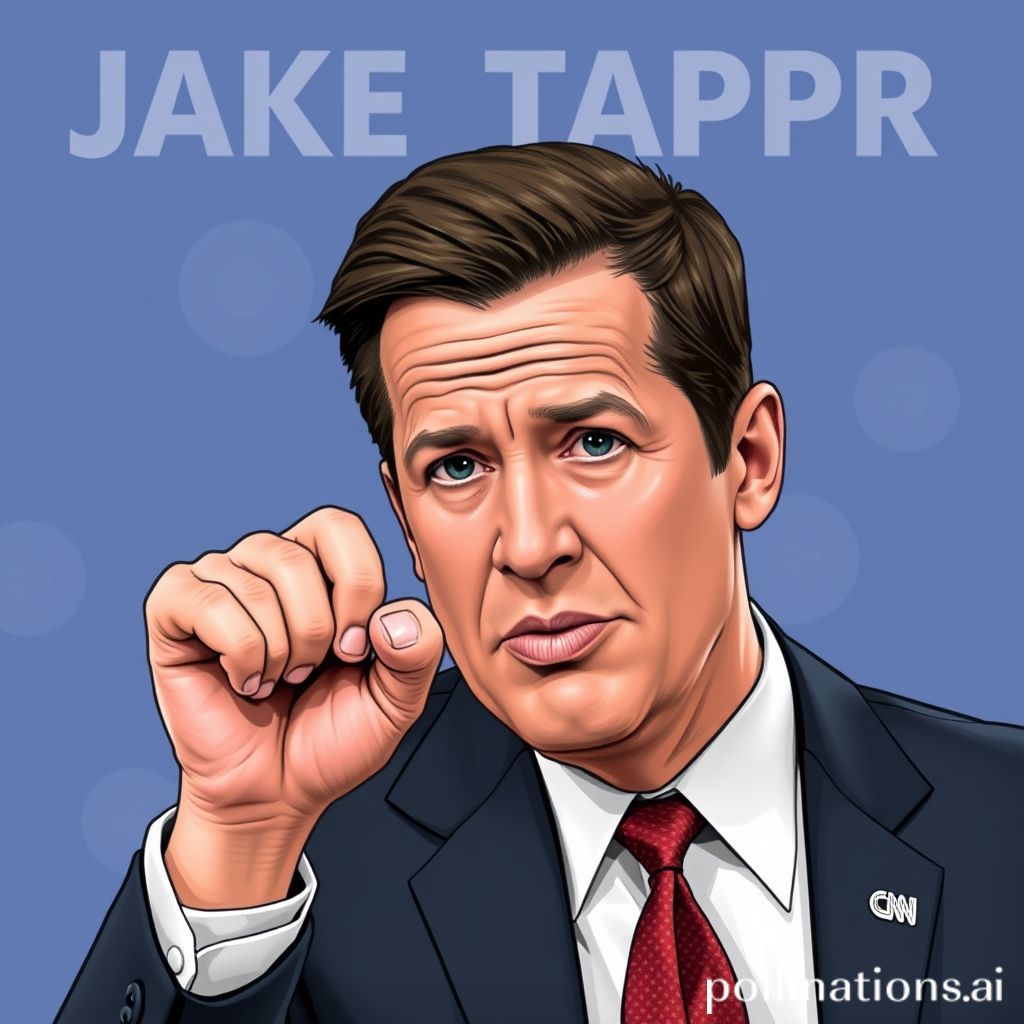
Jake Tapper Slaps Trump With A Reminder Of What Journalists Do After He Rants At CNN
Jake Tapper's Reality Check: A Journalist's Role in the Face of Criticism
We all know the drill. Political discourse these days can feel less like a conversation and more like a shouting match. When criticism flies, especially when directed at the media, it's important to understand the role journalism plays in our society. Recently, Jake Tapper of CNN found himself in the crosshairs after former President Trump launched a tirade against the network. Tapper's response? A firm reminder of the fundamental purpose of journalism. Let's break down what happened and why it matters.
Trump's CNN Criticism: A Familiar Tune
Former President Trump's relationship with CNN has been, to put it mildly, strained. He's frequently accused the network of biased reporting and "fake news," a tactic he's employed with various media outlets throughout his political career. This recent instance was no different. Trump took to social media and public appearances to criticize CNN's coverage, particularly focusing on what he perceived as unfair treatment and negative portrayals. These criticisms often escalate into personal attacks and sweeping generalizations about the entire network.
Tapper's Measured Response: Defending Journalistic Integrity
Instead of firing back with equal vitriol, Jake Tapper offered a measured and thoughtful response. He didn't engage in personal attacks or name calling. Instead, he reiterated the core principles of journalism: to report the facts, hold power accountable, and inform the public. He emphasized that journalists are not public relations agents for any political party or individual. Their job is to investigate, analyze, and present information, even when it's uncomfortable or challenges established narratives.
Tapper essentially reminded everyone that journalism is not about pleasing politicians or avoiding criticism. It's about serving the public interest, even when that means asking tough questions and reporting on uncomfortable truths. This is a crucial point to remember in an era where "fake news" accusations are frequently used to delegitimize reporting and silence dissenting voices.
Why This Matters: The Importance of a Free Press
The back and forth between Trump and Tapper highlights the ongoing tension between political power and the press. A free and independent press is essential for a healthy democracy. It acts as a watchdog, holding those in power accountable and ensuring that the public is informed about important issues. When politicians attempt to undermine the credibility of the media, it weakens this crucial check on power and makes it harder for citizens to make informed decisions.
Consider this comparison:
| Feature | Independent Journalism | State Controlled Media |
||||
| Primary Goal | Inform the public, hold power accountable | Promote the interests of the state/ruling party |
| Editorial Independence | High; decisions based on journalistic merit | Low; subject to political influence and censorship |
| Reporting Style | Objective, fact based, diverse perspectives | Biased, selective, often propagandistic |
| Critical Scrutiny | Encouraged, applies to all actors | Discouraged, criticism of the government is often suppressed |
This table illustrates the fundamental differences between journalism that serves the public and media that serves a political agenda.
Beyond Trump and Tapper: A Broader Conversation
This isn't just about Trump and Tapper. It's about the broader role of journalism in our society and the importance of defending its principles. It's about recognizing that criticism of the media is not inherently wrong, but that attempts to silence or delegitimize reporting pose a serious threat to democracy. It's about supporting journalists who are committed to reporting the truth, even when it's unpopular or uncomfortable.
My Takeaway: Standing Up for Truth
In a world saturated with information, discerning fact from fiction is more important than ever. Responsible journalism plays a vital role in this process. While criticisms are inevitable and even necessary for improvement, we must remember that the role of journalists is not to be cheerleaders or mouthpieces, but rather to provide the public with the information they need to make informed decisions. Jake Tapper's reminder of this fundamental principle is a valuable contribution to a critical conversation. We need to actively support and defend the integrity of journalism. It's not just about defending the press; it's about defending our right to know.

0 Comments:
Post a Comment